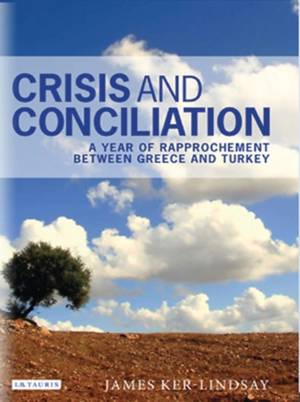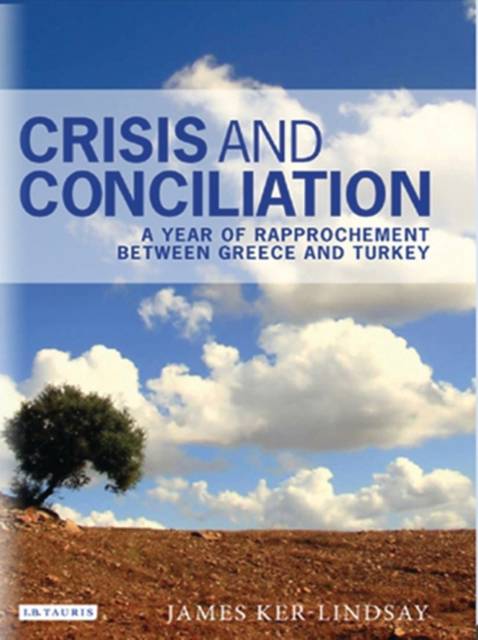
- Retrait gratuit dans votre magasin Club
- 7.000.000 titres dans notre catalogue
- Payer en toute sécurité
- Toujours un magasin près de chez vous
- Retrait gratuit dans votre magasin Club
- 7.000.0000 titres dans notre catalogue
- Payer en toute sécurité
- Toujours un magasin près de chez vous
Crisis and Conciliation
A Year of Rapprochement Between Greece and Turkey
James Ker-Lindsay
Livre relié | Anglais
271,45 €
+ 542 points
Format
Description
When Abdullah Ocalan, leader of the Kurdistan Workers' Party (PKK), was arrested in February 1999, it marked a turning point in relations between Greece and Turkey. As the country's most wanted man, his arrest was greeted with jubilation throughout most of Turkey. However, it also led to a public outcry when it emerged that he had been captured leaving the Greek Embassy in Nairobi, Kenya. This was seen as definitive proof that the Greek Government had been aiding and abetting the PKK. In the days and weeks that followed the arrest, relations between the Aegean neighbours sank to their lowest level since the summer of 1974, when Athens and Ankara had come to the brink of war over Cyprus. However, by the end of the year, the picture could not have been more different. An improbable series of events that included a regional conflict, two major disasters and the death of a senior Greek politician had led to a complete transformation in the relations between the two countries. The crowning moment of this change came in December when Greece dropped its long-standing opposition to Turkish candidacy for EU membership. How did this remarkable change come about? Who should take the credit?
And what did it mean for diplomatic relations in the Eastern Mediterranean? This is the story of how two countries started down a path to peace after decades of tension and hostility and how, over the course of one monumental year, relations between Greece and Turkey went from the brink of conflict to an unprecedented affirmation of friendship and solidarity.
And what did it mean for diplomatic relations in the Eastern Mediterranean? This is the story of how two countries started down a path to peace after decades of tension and hostility and how, over the course of one monumental year, relations between Greece and Turkey went from the brink of conflict to an unprecedented affirmation of friendship and solidarity.
Spécifications
Parties prenantes
- Auteur(s) :
- Editeur:
Contenu
- Nombre de pages :
- 192
- Langue:
- Anglais
Caractéristiques
- EAN:
- 9781845115043
- Date de parution :
- 01-03-08
- Format:
- Livre relié
- Format numérique:
- Genaaid
- Dimensions :
- 173 mm x 236 mm
- Poids :
- 476 g

Les avis
Nous publions uniquement les avis qui respectent les conditions requises. Consultez nos conditions pour les avis.






